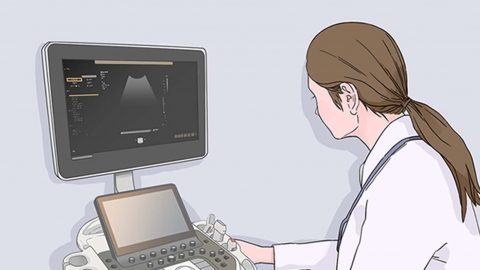What can a color Doppler ultrasound of the heart detect in newborns?
Under normal circumstances, a neonatal echocardiogram can detect issues such as heart size, origin of large blood vessels, ventricular wall thickness, cardiac valve structure, and heart dysfunction. Detailed analysis is as follows:

1. Heart Size
Through echocardiography, the sizes of each cardiac chamber can be measured, including the dimensions of the left and right atria, and the heart's morphology can be examined for normalcy.
2. Origin of Large Blood Vessels
Echocardiography clearly displays the origin, course, and connections of large blood vessels such as the aorta and pulmonary artery to the various heart chambers, accurately determining whether any abnormalities in vessel origin exist.
3. Ventricular Wall Thickness
Using the principle of ultrasound reflection, echocardiography clearly visualizes the morphology and structure of the ventricular walls and accurately measures the thickness of different regions of the ventricular walls, such as the interventricular septum thickness and the thickness of the left ventricular posterior wall. Excessive thinness may indicate myocardial damage or dilation.
4. Cardiac Valve Structure
Echocardiography can clearly visualize the four heart valves and determine whether there are conditions such as stenosis, insufficiency, or thickening of valves like the mitral or aortic valves, as well as identify any prolapse, vegetations, or ruptured chordae tendineae.
5. Cardiac Dysfunction
Echocardiography allows for a direct assessment of the heart's systolic and diastolic function. By measuring indicators such as left ventricular ejection fraction, myocardial velocity of motion, and ventricular wall motion synchrony, it can evaluate whether the newborn exhibits symptoms of cardiac dysfunction.
If a newborn suddenly becomes persistently fussy, develops cyanosis of the lips, or exhibits rapid breathing, or if a heart murmur is detected during physical examination, parents should promptly take the infant to the hospital for evaluation and consider performing an echocardiogram.






